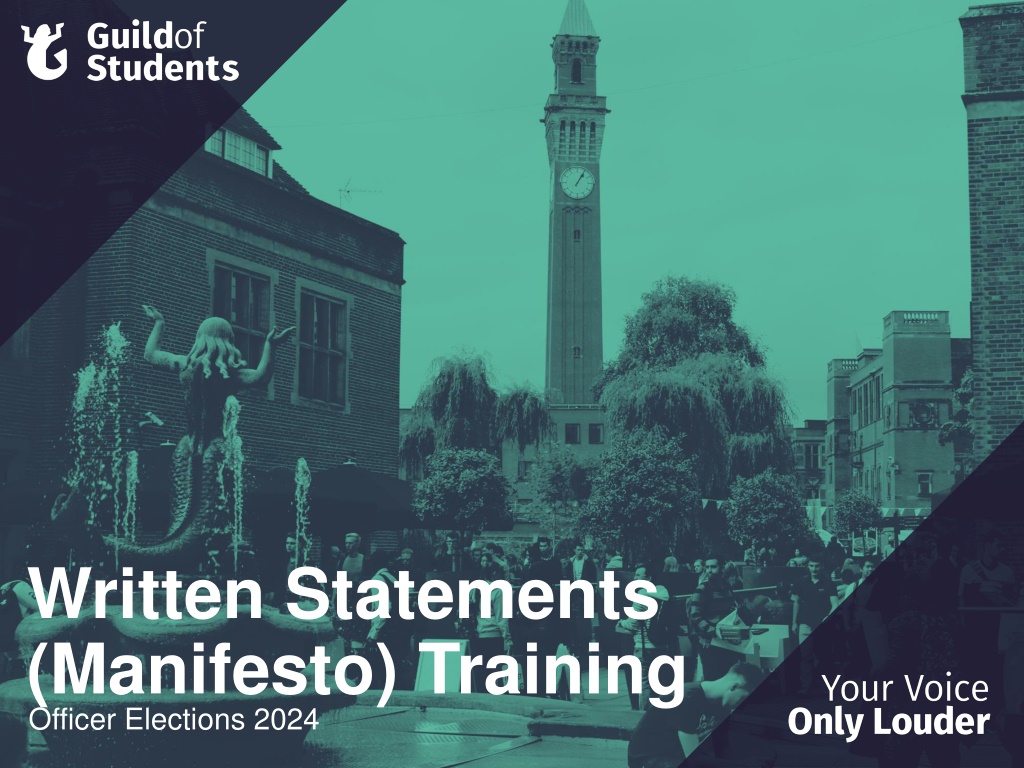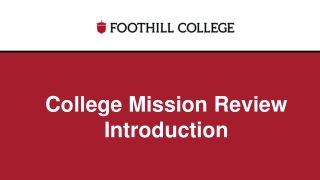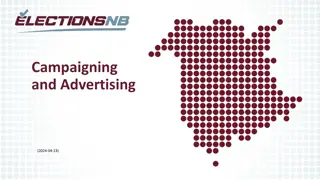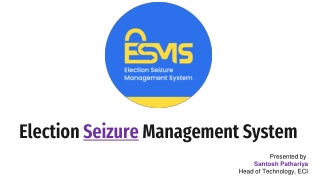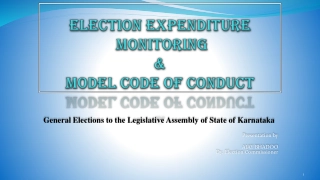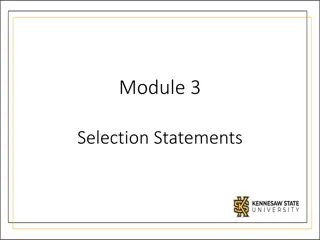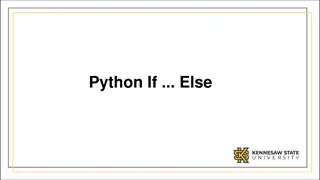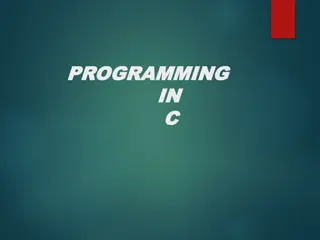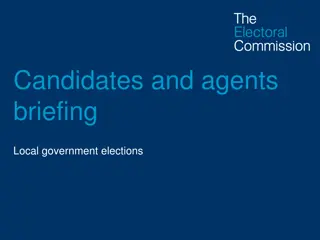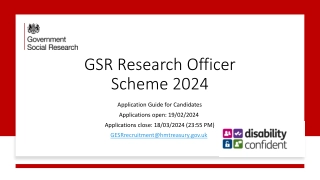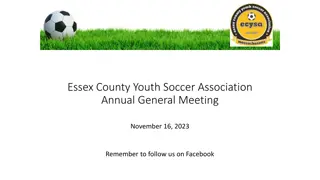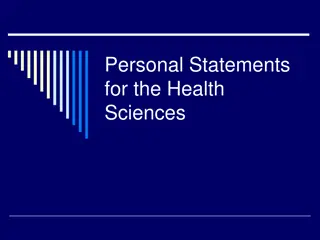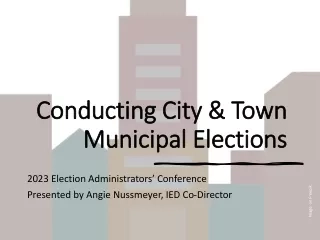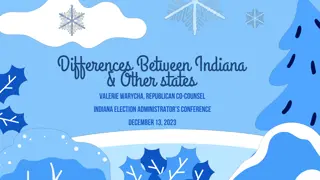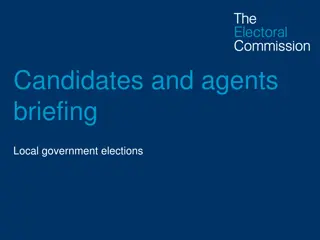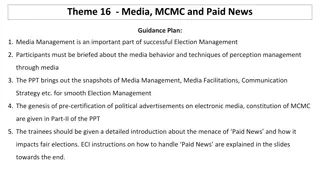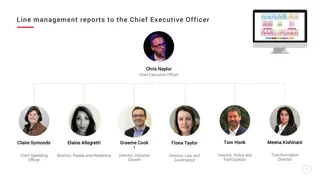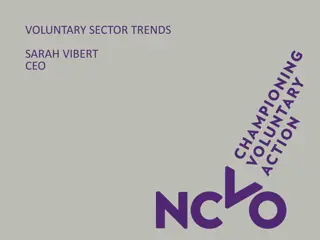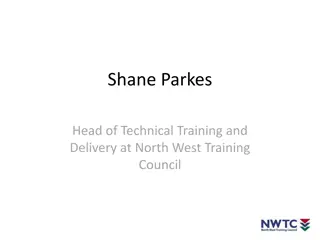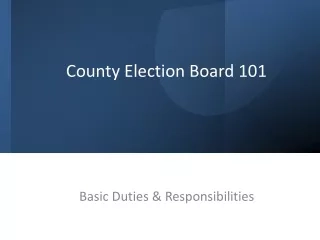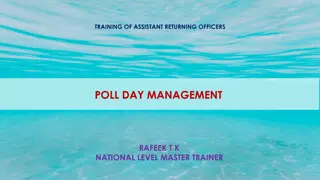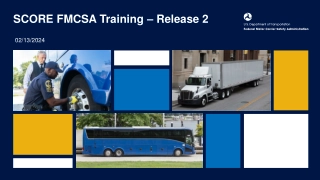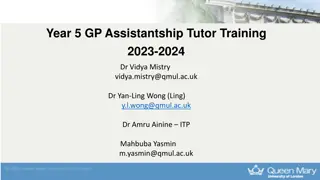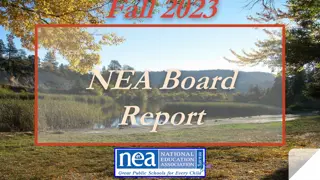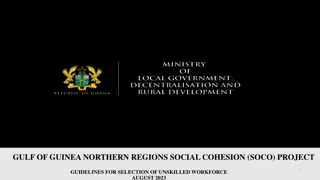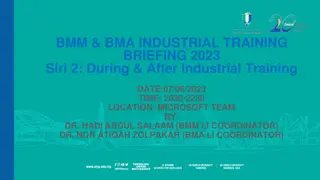Guide to Training Officer Elections 2024: Campaigning & Written Statements
Explore the essentials of participating in Training Officer Elections 2024, covering key topics such as the Guild's role, election processes, developing campaign strategies, and the importance of well-crafted written statements for candidacy success. Gain insights into effective campaigning, decision-making at the Guild, and valuable opportunities for personal growth and skill development. Empower yourself to engage meaningfully in the election process and make a positive impact within the UoB student community.
Download Presentation
Please find below an Image/Link to download the presentation.
The content on the website is provided AS IS for your information and personal use only. It may not be sold, licensed, or shared on other websites without obtaining consent from the author. Download presentation by click this link. If you encounter any issues during the download, it is possible that the publisher has removed the file from their server.
- Training Officer Elections
- Campaigning Strategies
- Guild Participation
- Written Statements
- Student Engagement
Presentation Transcript
Written Statements (Manifesto) Training Officer Elections 2024
Introduction to the Guild & Campaigning
Objectives of Session Introduction to the Guild and campaigning Guidance on written statements Have some practice at writing a written statement. Know how and when you need to submit your written statement by.
What is the Guild? The Guild is an independent charity, here to support the social and academic experience of UoB students, and ensure that you get the very best experience! Asides student elections, we offer a variety of services and opportunities to students, including: Decision-making (democracy) Student Rep System Campaigns Guild Advice Societies, Student Groups & Associations Joe s Bar Nightclubbing events (e.g. Fab) Student Mentors Community Wardens Scheme Student-Staff Jobs Employability Support and lots more volunteering opportunities! You can find out more info about the Guild of Students here (URL: www.guildofstudents.com)
Elections & Decision- Making at the Guild Every UoB student can take part in Guild elections and decision-making (democracy) Every UoB student can also represent other UoB students nationally, on Guild committees, and on University committees Officer Elections is the second election period of 3 election periods at the Guild Even if you aren t elected for a position in Officer Elections, you will still develop a great foundation of skills, experience and knowledge, which can prepare you for lots of other opportunities in the Guild (e.g. Autumn Elections, contributing to the All Student Meeting, campaigns), University (volunteering and job opportunities), and elsewhere (your career)
Help! Ive Never Campaigned Before! Don t worry! Lots of students think that they need to know lots of people and be popular to deliver an effective election campaign, and be elected for a position This isn t necessarily true though you can still win an election even if you are new to elections and/or new to UoB! There are lots of tools, methods and tactics that you can use to raise awareness of your campaign, raise awareness of who you are and why you are the best candidate for a role, and deliver an effective, powerful campaign even if you have never campaigned before! One of the key ways of raising awareness of your campaign is writing a written statement!
What is a written statement? 500 (or 200 words for NUS delegates) on what you will do as an elected Officer. Students and researchers usually make their decision on who to vote for based on their manifesto. You must have a manifesto to be a candidate in the election. An written statement is not: A CV A cover letter A step by step plan of what you ll do in your year as an Officer
!Important Note! For your campaign, you MUST submit a written statement (and candidate photo)! In previous years, positions available in Officer Elections have been highly contested, with as many as 10 candidates applying for 1 position so having a written statement (manifesto) which clearly states: why you want to apply what your policies are why you believe you are the best candidate for the role will really help students to decide whether they should vote for you. Students have also previously fed back that they prefer to vote for candidates who have submitted a written statement. Also, there ll be lots of students that you won t talk to during your campaign, but they may see your written statement when they go to the Guild website to vote and they will be able to see why they should vote for you.
Where Do I Start #1? When thinking about applying for a position in an election, and planning for your campaign and written statement, you should ideally think about: What are you interested in/what matters to you/what motivates you? What makes you angry? Why do you care about these things? Is there a role in the election that matches your interests? Why does this role matter to you? Do you want to make a change, and if yes, why? What has the Guild already done about the things that I m interested in? What do UoB students think about these things? How can I contribute to this change and work? Have I got any prior experience that can help? If I don t have any prior experience, how will my fresh perspective be helpful? What networks do I need to reach out to for support with my campaign?
Where Do I Start #2? Thinking about these questions will help you to plan your campaign and written statement, and it will be easier to plan, network and talk to UoB students for several reasons: There will ideally be an genuine underlying reason for why you want to apply for a role, which may be related to personal reasons or professional reasons, or both If you are applying for a role because it s something that you are genuinely interested in, and you express this in your written statement and campaign, your written statement and campaign will be seen as more genuine, honest and trustworthy (note you don t have to include any personal/sensitive information in your statement!) For example: - Some students apply for a Liberation Part-Time Officer role because they identify with a particular underrepresented group and from their personal lived experiences, they want to make positive changes for other students who also self-identify with an underrepresented group - Some students apply to be Education Officer or Postgraduate Officer because they have had a bad experience on their course
Where Do I Start #2? If you have no written statement (or photo), students will wonder why you wanted to apply in the first place, and won t know why they should vote for you! Also if you are elected, when you start your role, you will be able to better plan your work for your role when elected especially as you will create an Action Plan for your written statement!
Where Do I Start #3? When answering the questions that you were asked to think about, you could complete the Stick Person Exercise this may help you to think about them and plan your written statement and campaign. For this exercise: 1) Draw a stick person (you) in the middle of a sheet of paper 2) Write (or draw!) around the stick person your answers to your questions
Where Do I Start #4? Example of a simple stick-person exercise: Affordable social opportunities are important Climate change is important as it s related to decolonisation Black Voices Campaign I really care about the Black student experience My family, flatmates and friends are important to me as they help my wellbeing positively The government makes me angry because of the cost of living crisis Money issues of students are important I love taking photos The University makes me angry because they never listen to students
Planning Your Campaign #1 When you have completed the Stick Person Exercise , you can start to write your written statement and plan your campaign Your campaign plan may include how you will reach out to students there s lots of ways you can do this, and further guidance on this is covered in the remaining slides of this document If you would like to find out more what the Guild has already done for your ideas, and/or what feedback students have raised, you can refer to the Useful Information For Your Written Statement document on the elections webpage. In the above document, you can also find contact details for people you can talk to in the Guild and NUS about relevant topics and issues
Planning Your Campaign #2 It may be helpful to set SMART goals for your campaign this will help you plan your time, both during your campaign, and if you are successful: Specific Measurable Achievable Realistic Time-Bound Further guidance on smart goals can be found here
Guidance on Written Statements
General Structure What do you want to achieve in the role? If elected I would: Objective 1 Objective 2 Objective 3 Why are these objectives important? What experience/skills/qualities will you bring to the role? Why should students vote for you specifically?
What do you want to achieve in the role? What things are impacting students and researchers at the moment? What things might impact them? What fits within the remit of the role that your running for? Think about the different groups of students and researchers that you will be elected to represent. Eg. The Postgraduate Officer represents both Postgraduate Taught students and Postgraduate Researchers. No group of students is a monolith. They may have different views or thoughts on the same issues. Remember that everyone s experience of UoB is different depend on their background and social and cultural experiences.
What do you want to achieve in the role? Find out more about what students are thinking! Talk to your course mates, housemates, friends, and wider network. Other sources of student and researchers opinion: Current Officer Campaigns/Work. Student Ideas, Policy and Campaigns Submissions. Decision-Making Committee and All Student Meeting Minutes. Issues that Student Reps have been working on. NSS, PTES and PRES Results. NUS Campaigns More info
What do you want to achieve in the role? Why does it matter? What change are you going to make for Birmingham students and researchers? You can consider writing SMART goals S Specific, M Measurable, A Achievable, R Realistic, T Timebound
What experience / skills / qualities will you bring to the role? What have you already been involved with? A Student Group, being a Rep, a Part-Time job. What skills have you developed? Public speaking, working with other people etc. What was your experience as a student or researcher? You don t need to tell your life story but you may want to share challenges you faced. How do these skills/experiences/qualities make you the right person to be an Officer?
Why should students vote for you specifically? This is where you can persuade them to vote for you! You can use a catchy phrase or slogan. Summarize your experience and your objectives.
Things you shouldnt include Nothing illegal! If anything in your manifesto breaks the law or requires the Guild to break the law we will ask you to remove it. There are some things that you won t be able to do as an Officer. You can t do anything that goes against the Charities Act or the Education Act. You also need to make sure that you don t break the Equalities Act.
Could you put these in your written statement? Supporting Labour Party Candidates at the next General Election. Redecorating the Guild Reception with only pictures of the mermaid. Raise and donate 2000 per month for Student Minds. Abolish the Student Groups Grant Applications Process. Get rid of the Vice-Chancellor and replace him with an elected Academic. Allow Officer to hold a Full-Time Officer position for three years. Make VKs cost 1 for each Fab Night in October.
Could you put these in your written statement? Supporting Labour Party Candidates at the next General Election. The Guild can t support political parties Lobby local politicians to ensure that their General Election manifestos contain policies that reflect student needs. Redecorating the Guild Reception with only pictures of the mermaid. Raise and donate 2000 per month for Student Minds. Support Fundraising societies in the work and ensure that they are advertised by the Guild. Abolish the Student Groups Grant Applications Process. Work with the Student Activities Team to ensure that the Student Group Grant Application Process is smoother and faster. Get rid of the Vice-Chancellor and replace him with an elected Academic. Allow Officer to hold a Full-Time Officer position for three years. Ensure that student campaigners are supported to develop in their roles as leader and encouraged to take elected office. Make VKs cost 1 for each Fab Night in October.
Written Statement Practice Custard Creams Wants to improve the number of free biscuits in the Guild. Digestive Biscuits Thinks that everyone should be given a free biscuit when they join the Guild.
Using Your Manifesto Social Media Posts Campaign Poster Redbrick Interview/30 Second Video Written Statement
Using Your Manifesto You ve only got 500 words so you won t be able to fit everything in. You can expand on your individual manifesto points throughout your campaign. There may be issued raised by students throughout your campaign that you weren t aware of or hadn t included in your manifesto.
Keep It Accessible Use structure, headings and spacing to ensure that people can read your manifesto. Don t use acronyms! Break up your manifesto points into paragraphs. Keep your sentences short. Be careful of the language that you use. The Guild s Zero-Tolerance policy does apply to Officer Elections.
Some final tips Be concise and clear Avoid jargon eg. I want for TB to ensure that it gives regular updates to C&M that they send out via MSL. Set out your experience and your skills that will help you if you get elected. Make it personal and be yourself. Write a couple of drafts if you can. Read it aloud to hear how it sounds.
Uploading your statement 500 words for Officer Positions (Full-Time and Part-Time) 200 words for NUS Delegates Upload your manifesto through the same portal that you nominate yourself. You don t have to do it at the same time as nominating yourself. You must submit a manifesto before the nomination deadline. If you re having problems upload a statement send screenshots to elections@guild.bham.ac.uk
Written Statement Deadline
Written Statement Deadline: 16th February 4pm You will not be a candidate unless you have submitted your written statement and candidate photo by this deadline.
Thank-You If you have any questions please contact elections@guild.bham.ac.uk
